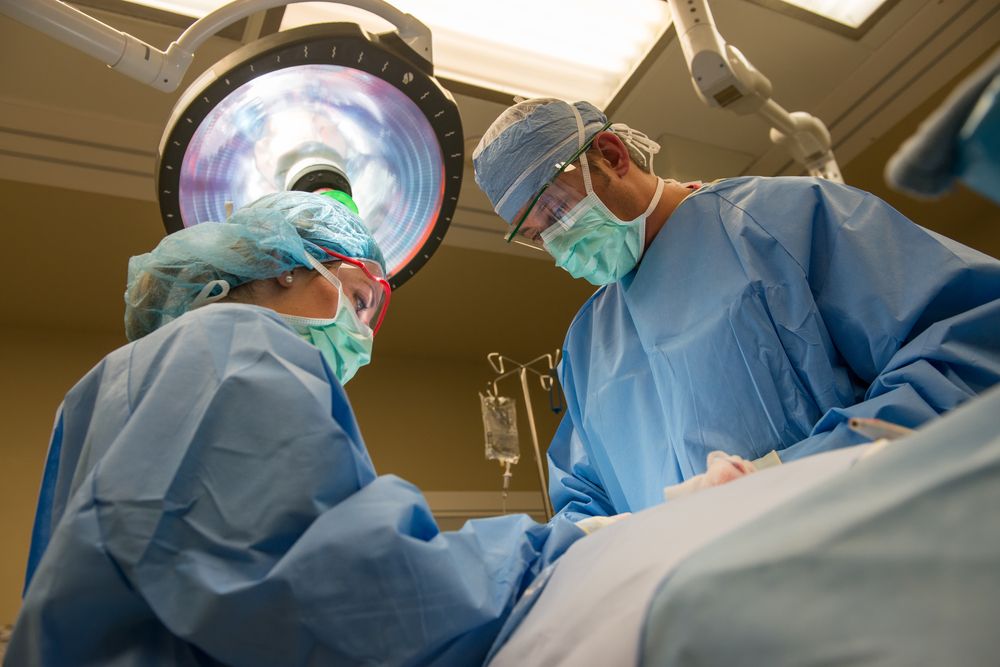The shocking news of a cancer diagnosis is often followed by the daunting task of selecting a surgeon. Although the anxiety and fear may feel overwhelming, and you may be tempted to get the tumor removed as quickly as possible, it’s important to take a bit of time to determine the best treatment for you. The initial tests, pathology review and the first therapy, which is often surgery, may determine the ultimate result of your treatment plan.
Surgeon Qualifications
In choosing a surgeon, formal training and depth of experience are indicators of expertise. Physicians achieve board certification in surgery through formal training in surgery and successfully completing certification exams. Most surgeons at Roswell Park Comprehensive Cancer Center have completed advanced training in their surgical sub-specialty. A sub-specialty certificate may demonstrate increased knowledge and training in a particular area.The National Cancer Institute (NCI) provides helpful guidance on finding a qualified surgeon as well as links to other reputable websites that offer relevant information and suggestions. NavigateCancer, another free resource, provides oncology nurses to counsel patients and families on where to go and the questions to ask, based on each patient’s personal priorities. Don’t hesitate to ask your surgeon about his or her qualifications to perform the specific kind of surgery you need. You may find the list of of questions below to be helpful as you prepare to meet with surgeon.
Hospital Quality
The choice of hospital is also critically important and several factors are worth considering. Your surgeon’s team should include highly qualified staff in pathology, nursing, anesthesiology and the recovery room. Within the hospital, expertise and experience in performing the specific procedures you will have is critically important. High volume is often associated with lower mortality and more positive patient outcomes. Other indicators of expertise in treating cancer include the NCI designation as a Comprehensive Cancer Center and accreditation by the Commission on Cancer of the American College of Surgeons. Generally, cancer centers such as Roswell Park report on these credentials and the qualifications of their physicians on their websites. A Nurse Magnet designation indicates excellence in patient-centric nursing.
Second Opinion
You might also want to meet with more than one surgeon before making a choice. The physicians at Roswell Park encourage patients to get second opinions in order to help them better understand and evaluate their options. At Roswell Park, patients’ records are thoroughly reviewed in advance of the appointment by specialized experts in surgery, pathology and radiology. This sets the stage for a well-informed conversation that includes a confirmation of the diagnosis as well as recommended surgical approaches.
Knowledge is Empowering
A diagnosis of cancer is always emotionally challenging, and having to make significant decisions at this time makes the situation even more difficult. It’s really important, however, that you ask your physicians, friends and family for recommendations and that you do your homework. Many patients find they feel a bit more in control once they start to gather information and meet with physicians. And fortunately, there are many resources available to help patients and family members make smart treatment choices and determine the path that is best for them.
Questions for the Surgeon
- Are there alternatives to surgery that we should consider?
- What will this surgery accomplish, exactly? How well does it usually work?
- How many of these procedures have you performed on patients?
- Do you have a team that you regularly work with in the OR? Will I see you after the surgery, in the recovery room?
- Which surgical technique(s) will be used? Open, laparoscopic, robotic?
- Are there any intraoperative treatments that could help me?
- Where will the incision(s) be? How big?
- What are the risks of this operation?
- Exactly what will happen during the procedure?
- How long will the operation take?
- Do I need to be concerned about blood loss during the surgery? Should I store my blood or get my family and friends to donate blood in case it is needed?
- How long will I need to stay in the hospital?
- What will my recovery be like? Will I need physical therapy or rehab? How long will it be before I can return to my normal activities?
- What complications could occur during the surgery or in the recovery period? Do I have any risk factors for complications?
- What are the infection rates for inpatients at this hospital?
- Do you think I will need either chemo or radiation?
- How should I prepare for this surgery? (for example, gain a few lbs, do more cardio or pulmonary exercise, acupuncture, yoga)
- How can I reach you if I have concerns or further questions? How can I reach you after hours? Do you have coverage during evenings and weekends?
